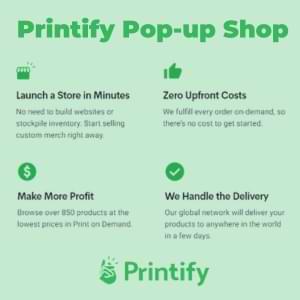Personal branding is like a lighthouse in the night sky, guiding people to their desired destination. It’s an essential tool for any modern professional looking to create a strong and positive reputation with customers, colleagues, and employers. As a personal branding expert, I know that by following certain steps you can easily craft your own powerful brand that will leave an impactful impression on those around you.
Having a strong personal brand helps you stand out from the competition and lets others recognize the unique skills and abilities you possess. Whether it be through social media or networking opportunities, there are countless ways to showcase your talents and experiences so that potential employers can quickly identify why they should hire you over someone else.
Your personal brand is more than just your resume; it’s about having the confidence to put yourself out there as an industry leader who adds value wherever possible.
With the right strategies in place, building up your personal brand will help open doors of opportunity that may have otherwise been closed off to you.
Personal Branding Definition
Personal branding is a way to stand out and differentiate yourself. It’s an opportunity to create your own unique presence in the world through your individual values, achievements, and goals. Understanding what personal branding means can help you become more successful both professionally and personally.
The term “personal branding” refers to how we market ourselves to others; it’s about creating a public perception of our identity that accurately reflects who we are as people.
Our brands should be based on our passions, strengths, and values, not just on what looks good or feels comfortable for us. To successfully build a brand, one must consider their purpose, mission statement, vision for the future, and key qualities they want to be associated with.
One example of personal branding is when someone creates a website or social media account dedicated solely to themselves or their business endeavors. They use this platform to showcase their skills, experiences, ideas and successes while also providing helpful advice or guidance related to their industry. Additionally, they may have created a tagline or slogan that speaks directly to their core beliefs which helps them establish credibility in the marketplace. This type of personal branding allows individuals to connect with potential clients and customers on a deeper level by conveying who they are authentically and transparently – this is essential for forming meaningful relationships with those around us.
Our personal brands should reflect our ambitions while still staying true to ourselves as individuals; it should demonstrate why we’re different from everyone else but at the same time clearly communicate what makes us special and unique so others recognize our value proposition quickly. Crafting a powerful personal brand requires intentionality, consistency, and authenticity; it’s ultimately up to you how you want your story told, but make sure it resonates deeply within yourself before attempting to share it publicly!
Introduction to Personal Branding
Now that we understand the definition of personal branding, let’s explore why it is important and how to get started. Personal branding can be a strategic advantage for anyone looking to stand out from their peers in order to achieve their goals. It allows individuals to create an impactful impression and communicate effectively with others who share common interests or values.
Establishing a strong personal brand requires planning, commitment, and consistency on behalf of the individual.
A solid strategy will help guide you as you identify your unique value proposition and distinguish yourself from other professionals in your industry or niche. Additionally, creating a platform where you can showcase your skillset is essential for making sure people recognize what makes you special. This could include online tools such as websites, social media profiles, or print collateral like business cards or brochures.
Personal branding activities are highly customizable depending on the individual’s strengths and desired outcomes.
Establishing relationships through networking events, engaging with professional organizations, and joining relevant conversations online—all these actions have the potential to play a role in establishing your presence within a certain community or field of work. Additionally, speaking engagements and writing articles can be powerful ways of sharing knowledge and expertise with others while also building credibility as an expert in your area of interest.
In short, take actionable steps towards defining yourself professionally so that when people think about the topic at hand, they remember you! Let your personality shine through everything you do so that you become known for more than just what your resume says. Make sure everyone knows exactly why they should turn to you first when seeking information or advice related to your specific experience set!
According to Search Engine Journal, “Personal branding is the process of creating an identity for yourself as an individual or business. It involves developing a well-defined and consistent look, message, and presence online and offline.”

Why Is Personal Branding Important?
It’s no secret that personal branding is becoming increasingly important in today’s workplace. A recent survey found that nearly 90% of employers have admitted to using social media profiles and professional networks when considering applicants for job positions. This statistic alone should be enough to make one realize how vitally important it is to invest time and energy into creating a strong, positive presence online.
There are several reasons why building an effective personal brand can be beneficial for both your career prospects and overall life satisfaction:
- It increases visibility. Having a recognizable online persona will help you stand out from the crowd by showcasing your unique skills and abilities.
- It builds trust. Establishing yourself as trustworthy through consistent messaging helps foster meaningful relationships with potential clients or employers.
- It strengthens reputation. People who take control over their own narrative tend to have more successful careers because they’re able to shape public opinion about themselves rather than relying on others’ interpretations of them.
- It enhances opportunities. When done right, having an established personal brand opens up doors for new projects, collaborations, and partnerships that would not otherwise be available without investing in this aspect of self-marketing.
Personal branding isn’t just about presenting ourselves in the best light possible—it’s also about making sure we’re putting our best foot forward, even if it means taking risks or going against the grain sometimes. Creating a memorable brand requires authenticity, consistency, creativity, resilience, and perseverance, but those qualities come with immense rewards, which makes all the effort worthwhile!
Personal Branding Benefits
Personal branding is a powerful tool that can help you stand out in any workplace. It’s all about creating an image of yourself, your skills and accomplishments that reflects positively on you as a professional. When done right, personal branding has huge benefits, not just for individuals but also for organizations.
First off, having a strong personal brand allows you to present yourself confidently and makes it easier to show potential employers or clients why they should hire you over other candidates. With the proper branding strategies, like maintaining regularly updated online portfolios and using social media platforms strategically, you’ll make sure your best qualities are noticed by those who matter most.
In addition, when employees have a strong personal brand in the workplace, their colleagues will respect them more and view them as reliable partners. This helps build trust within teams which leads to increased collaboration towards shared objectives—something every organization wants from its staff members! Having a well-defined personal brand also gives people more opportunities for career advancement since it shows employers that they take pride in their work and understand the importance of self-marketing.
By investing time into building your own unique personal brand, you’ll be better equipped to reach new heights both professionally and personally while differentiating yourself from the competition. And with today’s digital landscape providing innumerable resources available at our fingertips, there’s no excuse not to give this important aspect of success some serious consideration!
Personal Branding Strategy
We all want to stand out and be successful in the workplace, but how do we get there? Personal branding is a great way of achieving that goal. Now more than ever, personal branding has become increasingly important for anyone looking to make an impact on their career. It’s not just about having an online presence or leveraging social media; it’s also about making sure you’re seen as an expert in your field and conveying a clear message of who you are and what you can offer.
To craft a personal brand strategy, start by understanding yourself first. Ask yourself questions such as “What makes me unique?” “What am I passionate about?” and “How do I express my values?”
Once you have determined these answers, create content around them that will showcase your expertise and provide value to others. This could include writing blog posts or creating videos that demonstrate your knowledge. Additionally, use social media platforms to spread the word; if people don’t know about you, they won’t be able to recognize your skillset! Make sure to post regularly and engage with those who comment on your work. Finally, reach out to influencers in your industry and build relationships; this will help increase visibility for both parties involved!
Having a well-thought-out personal branding strategy is essential when trying to make an impression in today’s competitive marketplace.
You need to ensure that everything from your website design down to the keywords used in each post helps properly convey who you are while providing valuable insight into what sets you apart from the rest. Investing time into crafting this plan now will pay off dividends later, when it comes time for employers and other professionals to take notice of all that you have accomplished!
Personal Branding Statement
Personal branding is an important concept that encompasses how we present ourselves to the world. It can identify who we are and what our values are, making it essential in today’s workplace. A personal brand statement is a succinct way of conveying your unique identity and value proposition to others.
Your personal brand statement should be compelling and authentic, as this will help you stand out from the competition. This could include details about your purpose, strengths or accomplishments that make you unique. For example, if you are an accountant with strong problem-solving skills, you might say something like, “I am a certified public accountant specializing in finding creative solutions for complex financial problems.” Your statement should be concise yet powerful enough to capture people’s attention without being too long-winded.
In addition to creating a memorable impression on potential employers and clients, having a well-crafted brand statement can also add clarity to your online presence by providing focus for your social media profiles and website content. Moreover, it helps establish trust when communicating with other professionals or networking within your industry. Crafting a good personal brand statement takes effort, but it can pay off big dividends both professionally and personally.
Forbes notes that to build a personal brand, you should have a focus, be genuine, tell a story, be consistent, and create a positive impact.
Want some real examples? Then check out this Vector Market Index article for examples of successful personal branding, including Lily Herman, Aja Frost, Kat Boogaard, Caroline Kelso Zook, and Melyssa Griffin.
Everyone Social also provides additional examples of successful personal branding from Darrell Franklin, Madalyn Sklar, Chris Do, Irene Koehler, Troy Sandidge, Austin Belcak, and others.
Personal Branding Guidelines
Personal branding involves creating a positive, memorable image of yourself as it relates to your career and professional goals. Crafting the right personal brand statement can help you stand out from the competition and make sure that potential employers recognize your value.
To get started, there are some key components to consider when crafting a personal branding statement: succinctness, authenticity and clarity. You want to ensure that your overall message is concise yet powerful enough to communicate who you are and what makes you unique.
Consider highlighting one or two accomplishments or traits that have helped define who you are professionally. Additionally, try not to use vague language; it’s best if each phrase has real meaning behind it so that anyone reading it knows exactly what it conveys about you.
When writing a personal brand statement, be sure to keep it relevant and up-to-date with any changes in your industry or profession. This should also reflect how far you have come in terms of experience and achievements over time, while still remaining true to who you are at heart.
Taking these elements into account will allow your readers, whether they are potential employers or colleagues, to quickly identify the most valuable aspects of working with someone like you!
How to Write A Personal Branding Statement
Creating a personal branding statement is key to getting ahead in the workplace. It’s an important way of introducing yourself and your skillset, so it should be crafted thoughtfully. Crafting yours doesn’t need to be difficult. Here are three steps that will help you get started:
- Identify your strengths. Think about what makes you special or unique. What do you bring to the table that others don’t? List out all of your most valued qualities, experiences, accomplishments, and interests; these can include soft skills such as communication or hard skills like coding.
- Establish your goals. Now think about where you want to go with these qualities and how they fit into your larger career trajectory. Do some research on job opportunities in the field and figure out which ones align with both your values and skill set.
- Craft a message. Make sure whatever message you craft reflects who you are now, not just your future aspirations! Be honest, authentic, and concise; after all, this is supposed to represent the real you! Writing a personal branding statement takes time, but once done well, it can make a big difference when looking for work opportunities or even networking events. It’s essential to remember that personal branding isn’t only about promoting yourself; it’s also about showcasing how being part of something bigger than oneself enriches our lives by serving others through one’s talents, creativity, leadership abilities, and more. Put simply, effective personal branding provides value beyond ourselves while furthering our own ambitions at the same time —a win-win situation if ever there was one!
Personal Branding And Networking
Creating a personal brand is like having a superpower. It helps you stand out, makes you memorable, and puts your name on the map for success. Networking is an important part of building this brand, as it allows people to put a face to that name and get to know who you are as a person.
Networking gives individuals access to new opportunities, resources, and connections. By attending events or joining clubs related to your industry, you can introduce yourself and make valuable contacts in the field. These relationships will allow potential employers or customers to learn more about what makes you qualified for their business needs. Additionally, networking with other professionals enables you to share knowledge, experiences, and advice that help each other grow professionally while also boosting your own reputation in the process.
When connecting with others via networking channels such as LinkedIn or Twitter, be sure to present yourself well by using professional language and images appropriate for the platform. This helps create trust between those looking at your profile and builds credibility within your network over time. Personal branding through social media not only increases visibility but also spreads awareness of how someone’s skillset can benefit their community, whether it be providing services or offering advice on any given topic.
In short, personal branding combined with effective networking techniques is essential for making meaningful progress both personally and professionally. Taking advantage of these tools provides great rewards if done properly; however, if neglected, they could become detrimental instead of beneficial in developing one’s career path. To succeed, focus on creating strong relationships based on mutual respect which eventually leads to greater accomplishments down the line.
Personal Branding Goals
Personal branding is an essential ingredient for success in the modern workplace. It involves developing a unique identity that sets you apart from your peers and conveys confidence, competence, and credibility to those around you. The importance of personal branding cannot be overstated; it helps ensure that others recognize your value as an individual and can increase opportunities for career advancement.
One clear example of this concept in action is the case of Steve Jobs. After being dismissed from Apple in 1985, he set out on his own journey to create the NeXT Computer. He was determined to succeed and built a strong brand identity with stories about his vision for the company and its products. This enabled him to secure funding from venture capitalists and eventually return to Apple as CEO in 1997, transforming the company into one of the most successful brands in history.
When developing your personal brand goals, consider what kind of impact you want to have on your industry or field. Ask yourself questions such as “What do I stand for?” and “How do I want people to perceive me?” Think also about how you will use social media platforms like LinkedIn, Twitter, and Facebook to share information about yourself professionally. Lastly, take steps towards achieving these objectives by actively networking with influencers in your field, attending relevant events, participating in professional organizations, and blogging regularly on topics related to your niche area of expertise—all while staying true to who you are!
Personal Branding Importance
Developing a personal brand is imperative for those seeking to be successful in the workplace. It’s important to understand why having an effective personal branding strategy can boost your career and how it can help you stand out from the competition. Knowing the importance of establishing a personal brand will ensure that your efforts are fruitful.
Having a strong personal brand allows you to become more visible in the job market. By creating an online presence that highlights your skills and experience, potential employers will have access to valuable information about you before they even meet you. This gives them insight into who you are as a person and what kind of value you have to offer their organization. Additionally, showcasing yourself through social media platforms provides employers with real-time updates on your accomplishments, which enhances your credibility within the industry.
Second, when attempting to land a new position or get promoted within an existing company, developing a unique personal brand helps make sure that your name stands out among other applicants. Creating a professional website or blog is one way to do this; not only does this allow people to learn more about who you are and what motivates you, but it also reinforces positive aspects like dedication and commitment, which makes it easier for recruiters and hiring managers to remember your credentials. Furthermore, by networking via conferences or seminars related to your field, you’ll be able to interact directly with decision-makers, giving them an opportunity to form an opinion based on first impressions rather than solely relying on resumes alone.
Finally, having an engaging personal brand aids in boosting confidence as well as providing guidance during difficult times at work, such as disputes between colleagues or competing against others for positions or promotions. Fostering relationships with peers furthers growth opportunities while making sure that any mistakes made don’t define you entirely, allowing individuals room for improvement over time without being judged harshly by others due its effects lingering long after initial issues occur. Having strong ties with team members keeps morale high while fostering respect amongst each other, contributing towards better performance overall regardless of what roles employees play within their respective organizations..
Frequently Asked Questions
What Are the Elements of a Successful Personal Branding Strategy?
Successful personal branding is a key element of success in today’s marketplace. It can help you stand out from the competition, build an audience, and attract new customers. But what are the elements that go into creating a successful personal branding strategy? Here I’ll discuss three essential components to consider when developing your own approach.
- It’s important to define who you are as a professional or entrepreneur. What makes you unique? This includes both tangible qualities, such as knowledge and experience, and intangible attributes, like values and beliefs. Consider how these characteristics set you apart from others in your field and create opportunities for growth in the future.
- Hone in on who you want to target with your brand message. Identifying your ideal customer will make it easier to focus on specific topics related to them and tailor content accordingly. Make sure that each piece of content reflects this desired demographic by using language they understand and being mindful of their interests. Doing so will ensure maximum engagement with potential clients or customers.
- Find ways to share your story consistently across different platforms—social media, website copywriting, email campaigns, etc. — in order to get more visibility online and establish yourself as an expert in your field. Incorporating visuals, such as images or videos, is also helpful for making connections with people faster than words alone could ever do. All of these tasks require an effort but ultimately result in building trust among those viewing your content, which leads to long-term relationships down the road.
Personal branding isn’t something that happens overnight; rather, it takes time and consistent effort over months, if not years, before seeing real results. As long as you stay focused on defining yourself professionally, targeting the right people and sharing engaging stories regularly, there’s no reason why you won’t be able to achieve success with your own personal branding strategy!
What Tools Can I Use to Boost My Personal Brand?
When it comes to building your personal brand, having the right tools can make a world of difference. Whether you’re an entrepreneur looking to increase visibility or a corporate executive striving for greater recognition, these resources can help you accomplish your goals. From creating engaging content to connecting with influencers and leveraging digital marketing channels, here are some of the most effective ways to boost your personal brand.
At its core, successful personal branding requires you to establish yourself as an expert in whatever field you choose, whether it be business strategy, lifestyle design, or something else.
To do this effectively, start by creating high-quality content that reflects your unique perspective on topics related to your area of expertise. This could include blog posts, videos, podcasts, or any other type of media that showcases your knowledge and engages potential customers and followers. Additionally, consider joining social media platforms like LinkedIn where professionals from all backgrounds come together to share ideas and advice while networking with one another. Here, you can connect directly with key industry players who might be able to offer valuable insights into developing your professional identity further.
Finally, don’t forget about the power of traditional advertising techniques such as search engine optimization (SEO), pay-per-click (PPC) campaigns, and email marketing strategies, which allow you to target specific audiences more efficiently. By utilizing these tools strategically alongside other digital marketing tactics mentioned above, you will be well on your way towards achieving success in terms of boosting your profile online – setting yourself up for future success!
How Can I Measure the Success of My Personal Branding Efforts?
Measuring success is a key step in any initiative, and personal branding efforts are no different. It can be difficult to know where to start when assessing the effectiveness of your own brand, but with some straightforward metrics, you can get an accurate understanding of how successful your efforts have been. Here are three things you should consider when measuring the success of your personal branding:
- Brand Awareness: Are people aware of who you are and what you do? This metric looks at whether or not your target audience knows about you. You can measure this by tracking website visits, social media reach, email subscribers, and more.
- Engagement Rate: Do people interact with content that features your brand? Look for indicators such as likes, comments, shares, and views on social media posts; the number of downloads; or the amount of time spent on web pages featuring your name or logo.
- Lead Generation: What impact has your personal brand had on customer acquisition? Keep track of the number of leads generated from each source (including organic search traffic) and determine which sources bring in the highest quality leads so that you can focus on optimizing those channels over time.
These metrics provide valuable insight into how well-positioned your personal brand is within the marketplace; they help ensure that all future decisions related to its development will be based on sound data rather than guesswork. By keeping tabs on these figures regularly it’s possible to make sure that every action taken contributes towards further growth in awareness, engagement, and lead generation. Ultimately, understanding how successful previous actions were provides crucial information for planning ahead and developing measurable goals for future campaigns.
According to Forbes, to measure the success of your personal brand, you should avoid measuring your personal branding efforts through vanity metrics such as likes, comments, and shares1. Instead, you should keep track of every interaction you have with your audience, including emails, phone calls, and in-person meetings. The Personal Branding Blog adds that you can You can also measure your Klout score if you use Twitter and compare it to an industry leader’s score.
Additionally, you can monitor your personal brand name across the web with Google Alerts, a free tool that sends email updates about a topic or phrase that you choose.
How Can I Use Personal Branding to Promote My Business?
Personal branding is a powerful tool for business owners to promote and grow their companies. It involves showcasing your individual strengths, skills, and values in order to cultivate an identity that will help you stand out from the competition. With personal branding, you can create an image of yourself as reliable, trustworthy, and knowledgeable—qualities that are essential for success in any industry.
In terms of using personal branding to promote your business, the first step is to define what makes your company unique. What do you offer that others don’t? How does this differentiate you from your competitors?
Once you have a clear idea of who you are and what sets you apart from the rest, it’s time to start building up your brand presence online. This could mean creating content on relevant websites or social media channels such as Twitter or LinkedIn, running giveaways or competitions with customers, or sponsoring events related to your sector. All these activities will help build awareness about your company and show potential clients why they should choose you over someone else.
By engaging actively with current and future customers through personalized marketing efforts like blogging or email campaigns, sharing expertise through webinars or podcasts, and participating in conferences and networking opportunities—all while promoting yourself as an expert within your field—you can increase visibility for both yourself and your business exponentially. Ultimately, this will lead to increased sales figures as well as recognition in the marketplace among other thought leaders in the same industry—two important factors when measuring success!
What Are the Best Practices for Creating a Personal Branding Statement?
Creating a personal branding statement can be an incredibly powerful tool for entrepreneurs and business owners. It is essentially a way to define and communicate who you are, what your values are, and how your skills can benefit those around you. The best practices for creating a compelling brand statement involve careful thought and reflection on the unique qualities that make up your identity as it relates to your business.
To begin crafting an effective personal brand statement, start by asking yourself questions such as: What makes me stand out in my field? What sets me apart from other businesses or professionals in my industry? How would I describe myself if someone asked about my company’s mission? Answering these questions will give you more clarity regarding the type of message you want to express through your branding efforts.
Once you have identified the core elements of your personal message, take some time to think about how each one should be presented. For example, consider using language that resonates with people rather than relying solely on technical jargon or dry facts about your accomplishments. Additionally, focus on connecting emotionally with potential customers and clients by emphasizing why they should trust you over competitors – this could include highlighting customer testimonials or examples of past successes.
The final step towards assembling a professional yet personable brand statement is ensuring that it reflects both who you are today as well as where you plan to go in the future. This means including tangible goals alongside any promises made, so there’s no confusion among those interacting with your brand. By following these steps when constructing your own unique version of a personal branding statement, you’ll be able to craft something meaningful that accurately conveys all aspects of who you are as a professional while also inspiring others to believe in what you do!
Final Thoughts
Personal branding is an invaluable asset to any individual or business. With the right strategy and tools, you can create a unique brand identity that will help you stand out from the crowd and gain recognition for your achievements. The Harvard Business Review notes that you should also figure out what drives you, align your intentions with actions, and amplify what you believe. HBR adds, “Personal branding is not just about self-promotion but about defining the distinctive value that you bring to your career.”
Effective personal branding requires more than just crafting a statement; it’s also about measuring results, taking calculated risks, and staying flexible as market conditions change. By leveraging these techniques and understanding best practices, I’m confident that anyone can benefit from building their own personal brand.
My advice? Take the time to get creative with your approach to personal branding. Be bold in expressing who you are and what values you stand for; be persistent in striving for success; and above all else, don’t forget to have fun! After all, if you’re not enjoying yourself along the way, why bother at all?
Personal branding is like a lighthouse in the night sky, guiding people to their desired destination. It’s an essential tool for any modern professional looking to create a strong and positive reputation with customers, colleagues, and… Click To Tweet
Note: Some links on this page are affiliate links meaning that if you click on my link and make a purchase, I will receive a small commission. It does not however affect the price you pay. Plus, it’s a great way to support me and the content I’m providing.






